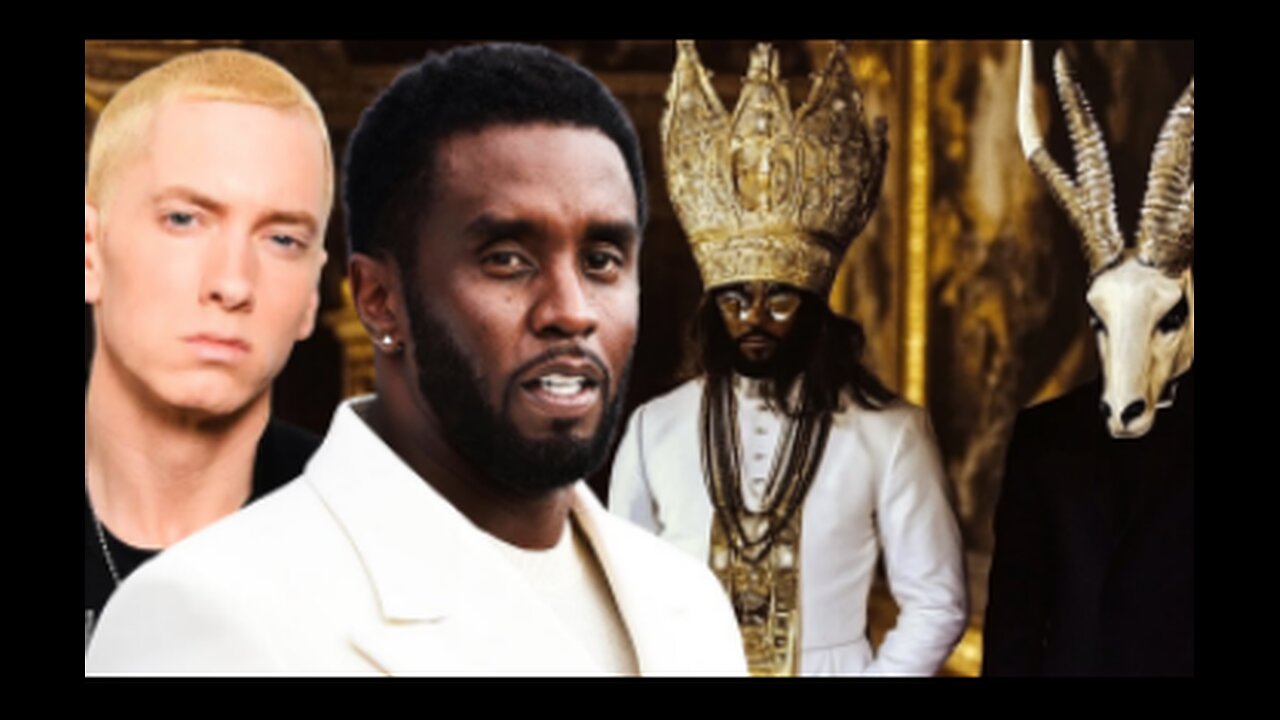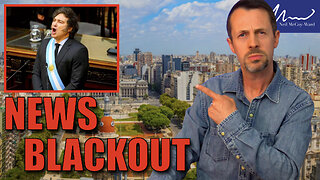Premium Only Content

While They Endorse Kamala Harris, This Was Happening (it all makes sense)
The modern music industry has long been associated with promoting dark, provocative themes, often veiled under the guise of artistic expression. A growing number of artists, like Eminem with his latest album The Death of Slim Shady, have been criticized for using symbols and references to Satanism, with track titles like "Lucifer," "Antichrist," and "Evil" explicitly confronting fans with disturbing imagery and lyrics. This approach isn’t new, as the rock and heavy metal genres have long been accused of incorporating occult and demonic symbolism, from early artists like Robert Johnson to bands like Black Sabbath and Iron Maiden. These provocative themes have often been marketed as edgy and rebellious, playing on shock value to attract attention and sales. However, some artists now seem to be shedding light on the darker, more manipulative forces behind the scenes—highlighting the business side of the music industry, where success and wealth are often linked to embracing controversial, sometimes Satanic, imagery.
As this trend has intensified, critics argue that these symbols are not just for shock value but may be part of a larger, orchestrated effort to subtly influence the public. Over the years, symbols like the Illuminati triangle and dark imagery have become almost ubiquitous in mainstream pop culture, seen in the performances of artists like Beyoncé, Miley Cyrus, Lady Gaga, and Madonna. While many of these artists claim to be merely using symbolism for personal or artistic reasons, others suggest that there may be a deeper cost involved in their success—namely, the idea of "selling one's soul" for fame and influence. As more artists and commentators, including rappers like Ransom and Paul Kane, begin to expose the industry's darker side, there is a growing awareness of the manipulative tactics used to draw performers and fans alike into this cycle of fame, fortune, and dark symbolism. However, there are also signs that audiences—especially younger generations—are starting to reject this narrative, seeking out more wholesome and authentic content.
-
 13:05
13:05
Neil McCoy-Ward
1 hour agoWhy The Media Won't Tell You What Milei Did In Argentina...
4.58K1 -
 3:56:44
3:56:44
Alex Zedra
13 hours agoLIVE! Trying to get achievements in Devour
201K26 -
 2:00:43
2:00:43
The Quartering
16 hours agoThe MAGA Wars Have Begun! Vivek & Elon Get Massive Backlash & Much More
210K90 -
 1:25:53
1:25:53
Kim Iversen
3 days agoStriking Back: Taking on the ADL’s Anti-Free Speech Agenda
136K109 -
 49:35
49:35
Donald Trump Jr.
20 hours agoA New Golden Age: Countdown to Inauguration Day | TRIGGERED Ep.202
251K244 -
 1:14:34
1:14:34
Michael Franzese
18 hours agoWhat's Behind Biden's Shocking Death Row Pardons?
96.5K54 -
 9:49
9:49
Tundra Tactical
17 hours ago $29.09 earnedThe Best Tundra Clips from 2024 Part 1.
179K15 -
 1:05:19
1:05:19
Sarah Westall
17 hours agoDying to Be Thin: Ozempic & Obesity, Shedding Massive Weight Safely Using GLP-1 Receptors, Dr. Kazer
142K37 -
 54:38
54:38
LFA TV
1 day agoThe Resistance Is Gone | Trumpet Daily 12.26.24 7PM EST
96.3K13 -
 58:14
58:14
theDaily302
1 day agoThe Daily 302- Tim Ballard
87.8K15